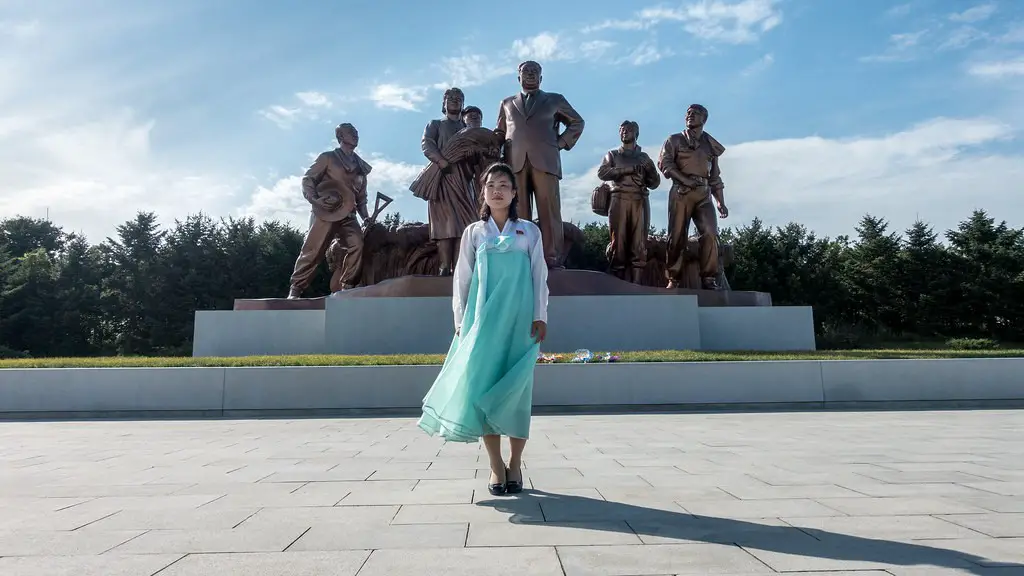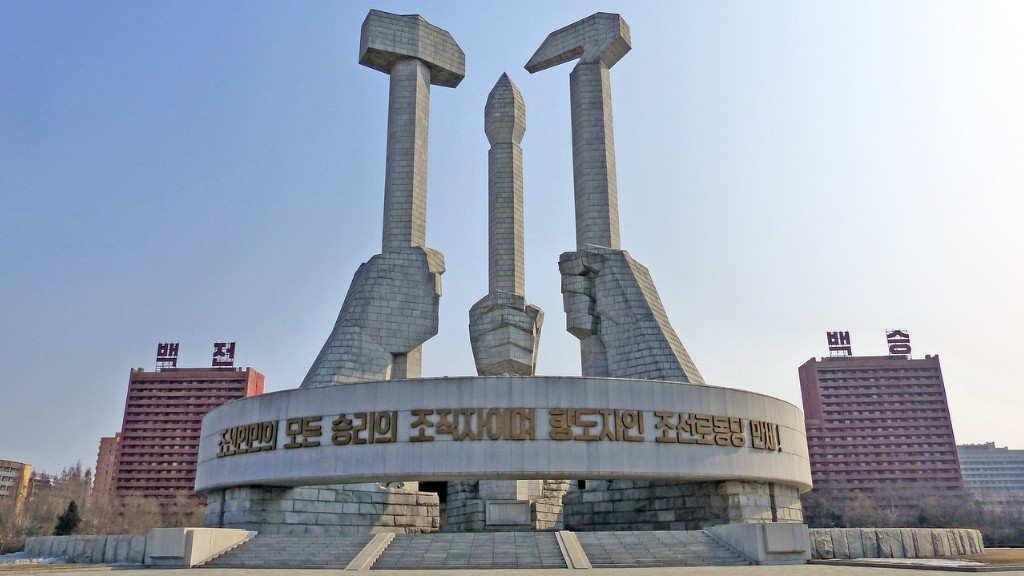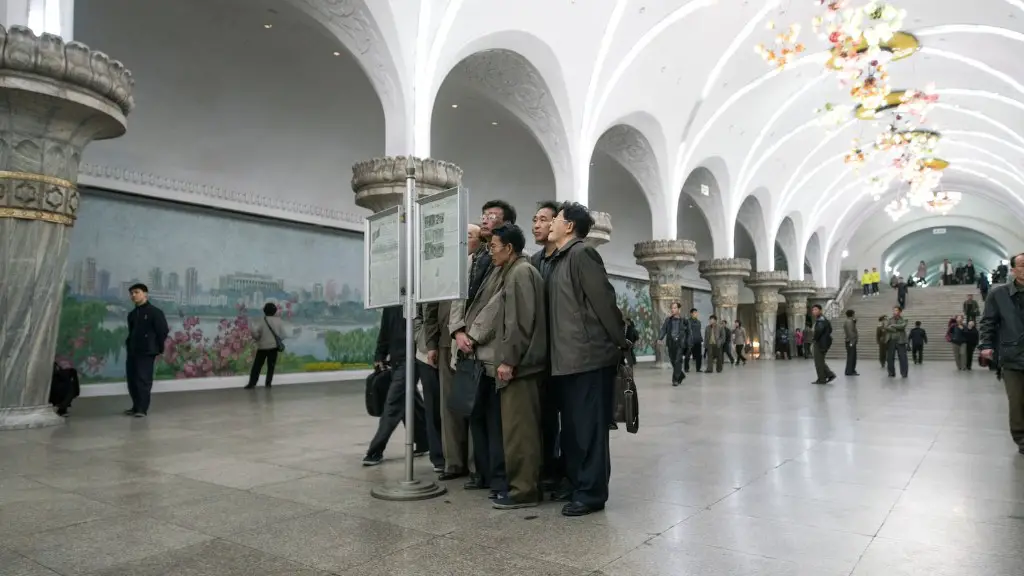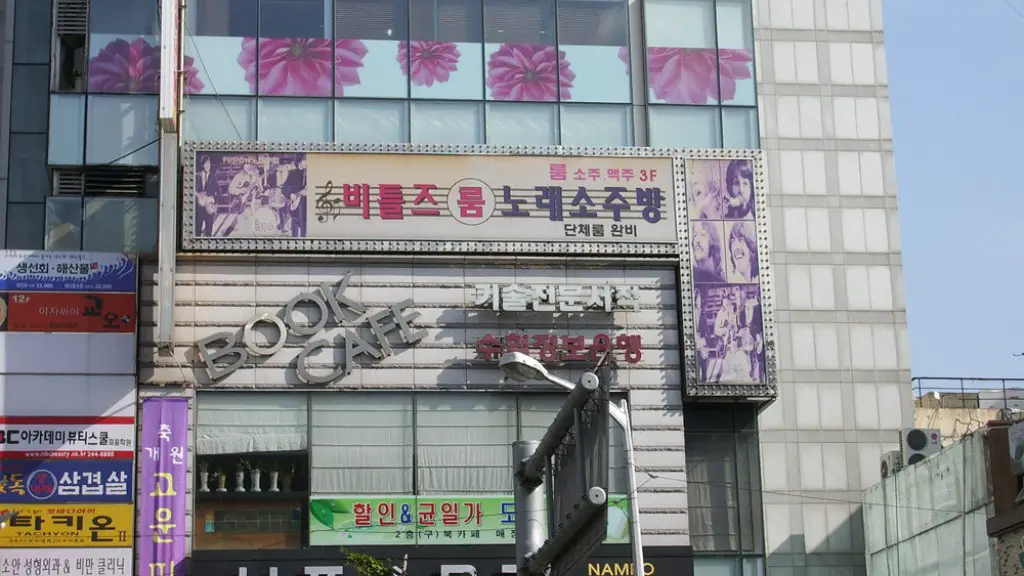North Korea has been a nuclear weapons possesser since 2006. The government has repeatedly stated that its development of nuclear weapons is for self defense and that it will not use them offensively. There are, however, many countries, including the US and its allies, who are concerned about Pyongyang’s nuclear ambitions. This is because North Korea is situated in an already volatile region and the world is aware of their past behavior.
One of the main reasons why North Korea has chosen to develop nuclear weapons is to deter foreign invasion and safeguard the regime. North Korea has been in a state of war with South Korea since 1953. Since then, North Korean leader Kim Jong-Un has sought to consolidate power with a nuclear arsenal and to modernize its conventional military forces, including weapons of mass destruction, with the understanding that the United States and its allies are not likely to launch an overt attack because of the risk it would trigger regional instability and a full-scale nuclear war.
Another reason is to demonstrate its international influence and presence. North Korea has always viewed itself as an independent power and nuclear weapons are a way to present itself as an international player. North Korea is seeking to demonstrate its technological and military capability and prove its legitimacy in the eyes of the world. North Korea is trying to use the threat of its nuclear weapons to gain diplomatic recognition and greater security guarantees from its neighbors and the United States.
Experts also suggest that Pyongyang sees nuclear weapons as a strategic tool to extort economic concessions and foreign aid from the international community. Most of North Korea’s economy is structured to finance its military and its weapons program, while the vast majority of its population is left with very limited resources to survive. North Korea has used its nuclear program to gain foreign aid from donor states, as well as the attention of the international community to help legitimize its regime
In addition to this, it is believed that obtaining nuclear weapons is also a matter of pride for the North Korean military establishment and for the Kim Jong Un himself. North Korea has spent years investing and mobilizing large amounts of resources in its efforts to build and refine its nuclear weapons, and to publicize its military capability. Pyongyang has also been willing to suffer international sanctions to advance its nuclear weapons program, as well as a more confrontational approach to its neighbors and the US.
Experts suggest that North Korea will continue to pursue nuclear weapons as long as Pyongyang believes it provides a counter-balance to US and South Korean military power and the potential threat they pose. North Korea has repeatedly said it will not back down from its nuclear ambitions and it is clear that the world will need to find alternative ways of addressing North Korea’s growing capabilities before it is too late.
Sanctions
The international community has responded to North Korea’s nuclear program largely by imposing economic sanctions. According to the United Nations, North Korea has endured over a dozen rounds of sanctions since 2006, when the country first tested a nuclear weapon. These sanctions have been quite successful in limiting North Korea’s access to key minerals, and reducing the trade, capital, and technology investments from other countries.
However, there are limitations to what economic sanctions can accomplish. By limiting access to resources, sanctions risk appearing to be an indirect form of aggression, deepening Pyongyang’s sense of isolation. Moreover, if sanctions are too effective, they also risk a political backlash as the number of citizens suffering economically as a result of sanctions increases.
Moreover, the effectiveness of sanctions depends in part on their enforcement, and here the track record of the international community has been far from impressive. This is because North Korea has been able to use global financial systems to its advantage, engaging in activities that allow it to continue to produce nuclear materials and evade sanctions.
Despite the shortcomings of sanctions, they remain a primary tool of dealing with North Korea, though increasingly supplemented by diplomacy. In denuclearization talks, allies such as the United States, as well as countries that have traditionally been hostile towards North Korea such as China and Russia have all leaned into the diplomatic process.
Arms Control
An alternative to sanctions and war is arms control, which involves negotiations to limit, modify, or even abolish nuclear weapons of all types. Unilateral disarmament is one such example, where a country unilaterally gives up its nuclear weapons in exchange for increased security assurances from negotiating partners.
In the case of North Korea, arms control talks have been focused on dismantling its nuclear infrastructure and programs in exchange for concessions from countries like the US and its allies. This includes providing economic benefits and security assurances, while also opening the possibility of establishing diplomatic relations with the North Korean government.
However, South Korea and its allies in the region have differing views on arms control. South Korea is in favor of negotiating with North Korea, while the US favors a tougher stance, arguing that any disarmament should include other aspects of the North Korean military. In addition, there are questions about whether Pyongyang is serious about disarming or merely looking for another way to buy time while it continues to develop its nuclear arsenal.
This makes negotiating a disarmament deal difficult, even in the presence of the most credible of international actors. Nevertheless, arms control remains a viable alternative to military confrontation and economic sanctions, especially if both sides present a constructive and open attitude towards negotiations.
International Collaboration
As the situation in North Korea continues to fester with little sign of progress between the two sides, there is an increasing need for the international community to collaborate in finding a peaceful and lasting resolution. This means providing support and cooperation both political and economic to the North Korean people, while also putting pressure on Pyongyang to come to the negotiation table.
The European Union, United States, and other countries have implemented programs to provide humanitarian aid to North Korea, including food, medical supplies, and other essential supplies. These programs are largely seen as helping to alleviate some of the suffering of the North Korean people, and for creating a more conducive environment for eventual diplomatic reconciliations between the two sides.
Beyond offering immediate relief, international actors have also leaned into a path of economic opening, providing economic and investment opportunities to North Korea. There have also been a number of high-level economic and diplomatic initiatives from China, South Korea, and other states in Northeast Asia, which are intended to de-escalate the situation, stimulate economic growth and reconciliation, and open the possibility of talks.
These initiatives have seen mixed results, with some progress towards reducing sanctions and providing aid when possible, but little to no progress on the matter of denuclearization and disarmament. Nevertheless, they provide a ray of hope in a tense situation, and underscore the important role of international collaboration in finding a viable long-term solution to the North Korean crisis.
Prospects
The prospect for a peaceful solution to the North Korean nuclear crisis remains distant. Despite ongoing diplomatic negotiations and international efforts, the stalemate between the two sides appears to be hard to break, as both sides remain far from any comprehensive agreement. Worse yet, North Korea’s recent rhetoric and behaviors have done little to assuage the international community, and has only added to the woes of the region.
In the short term, the international community should continue trying to dial down the tension and push for disarmament talks. This will involve the US and other global powers continuing to engage in regular diplomatic contacts with North Korea and providing aid where possible, while also demanding concrete actions from Pyongyang to begin rollback its nuclear weapons project.
In the long term, the North Korean crisis may never be resolved through traditional diplomacy. This is because North Korea is unlikely to agree to any disarmament agreement without significant concessions from the US and its allies, which the international community is unlikely to provide. As a result, it is likely that North Korea will remain a nuclear power for the foreseeable future, and the challenge for the international community will be to manage and contain this reality while trying to bring the two sides together.
Regional Stability
Finally, in order for the situation in North Korea to be more successfully managed, neighboring countries will also have to play a more active role. This is particularly pertinent for South Korea and China, which are the two most powerful countries in the region and have direct interests in the outcome of the dispute.
South Korea and China have often been at odds over their approach to North Korea and their respective security interests in the region—with South Korea preferring more hardline sanctions and sanctions enforcement and China preferring softer diplomatic approaches. Nevertheless, they will both need to work together to bring some stability to the region, while also finding a way to engage North Korea in a meaningful dialogue and eventually bring it to the negotiating table.
Ultimately, should all sides continue to strive for a peaceful resolution to the North Korean nuclear stand-off, there is cause for cautious optimism. Should North Korea eventually agree to a denuclearization agreement, this could be a major step forward to restoring regional harmony and reducing international tension.
Opportunities
In addition to regional stability, there are also opportunities to be seized from a successful resolution to the North Korean nuclear dispute. This includes economic opportunities, such as increased regional trade and investment flows, as well as political opportunities such as improved international relations.
The economic opportunities in particular would be immense. North Korea is an economically isolated country, and the world could benefit from greater economic cooperation with Pyongyang. This includes trade and investment initiatives, as well as the creation of new joint ventures and development projects to help bring about a more prosperous future for the region.
At the political level, a successful outcome to the nuclear conflict could be used as a catalyst to create a more stable and less confrontational international system in the long-term. This in turn could lead to a better and more meaningful interaction between global powers and North Korea, resulting in a more safe and secure international system.
Thus, there are real opportunities to be gained from a successful resolution to the North Korean nuclear crisis. These should not be underestimated and should be pursued by all sides, for the betterment of the international community.





